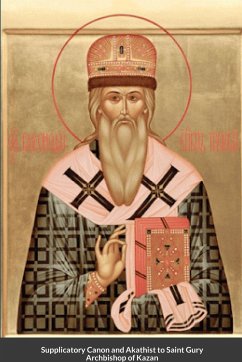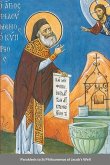Gury (Karpov), also Gurias of Tavryisk, was Archbishop of Tauris and Simferopol during the latter half of the nineteenth century. He was a scholar and missionary in China, leading the fourteenth Russian mission in Beijing. He was glorified by the Ukrainian Orthodox Church in 2008. He is remembered on March 17, the day of his repose. Grigory Platonovich Karpov was born in 1814 in the town of Saratov, Russia. His father was a priest. He attended the Saratov Theological Seminary, graduating in 1837 after which he entered the St. Petersburg Theological Academy. While attending the academy he was tonsured a monk and received the name Gury on July 12, 1838. The following month on August 4, he was ordained a hierodeacon, followed a year later on November 20], 1829 as a hieromonk. He graduated from the St. Petersburg academy in 1839 with a Candidate degree in theology. After his graduation, Fr. Gury was appointed, on December 23, 1839, a member of the Russian Orthodox Mission in Beijing. This appointment by a decree of the Holy Synod started a twenty-year relationship with the mission in China, a relationship that result in his translation into Chinese of the Gospels, service books, and other liturgical books. In 1851, he was reassigned back to Russia. On February 21, 1851, Fr. Gury was elevated to the rank of archimandrite. On October 12, 1851, he was appointed Inspector of the Alexander Religious School. On August 17, 1855, Arch. Gury received his Master of Theology degree. On August 25, 1856, he returned to Beijing, this time as the leader of the fourteenth mission in China. During this period of service in Beijing, Arch. Gury continued his efforts of translating the theological works of the Orthodox Church into Chinese and established a scholarly foundation for his successors. He had mastered the Chinese language, becoming proficient in speaking as well as writing. Among his works were the translation of New Testament in two volumes, a Psalter, and volumes dealing with Orthodox services and church history. In addition to his scholarly works, he put his hands to building traditional Russian stoves, to ward off the chill of the Beijing weather, and organized the Albanzinians in the mission compound into the Beijing choir. His service in China ended in 1864. On September 13, 1865, Arch. Gury arrived at his next assignment as priest-in-charge of Siminov Monastery in Moscow, with Arch. Pallady (Kafarov) replacing him in Beijing. On January 26, 1866, he became th
Hinweis: Dieser Artikel kann nur an eine deutsche Lieferadresse ausgeliefert werden.
Hinweis: Dieser Artikel kann nur an eine deutsche Lieferadresse ausgeliefert werden.








